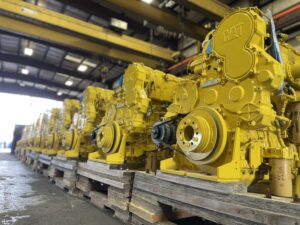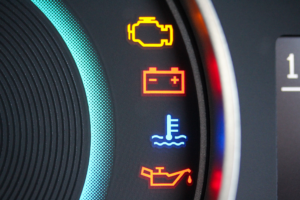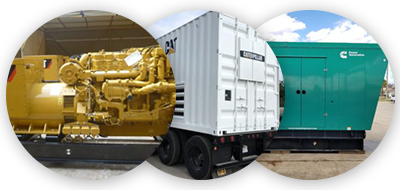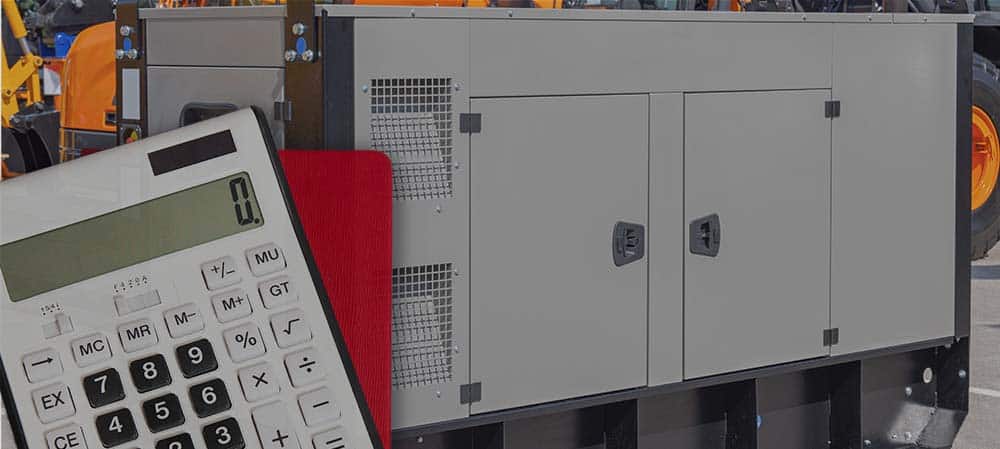
In a world where electricity is the lifeblood of commerce, ensuring your business has the right backup power solution is nothing short of vital. That’s where our comprehensive guide comes in, helping you size your industrial generator based on operational needs by considering factors like load capacity, power requirements, fuel availability, efficiency, environmental and safety concerns, additional features, options, and installation.
In this guide, we’ll illuminate the art and science of generator sizing, empowering you to make an informed decision that keeps your business powered up and running smoothly even when the lights go out. With our guidance, you’ll navigate the maze of generator specs with ease, ensuring your backup power solution is perfectly tailored to your unique requirements.
Generator Capacity and Load Requirements: Sizing it Right
The first crucial step in choosing a commercial generator is determining the correct size. Accurately understanding your power requirements is essential for selecting the right generator, as underestimating load capacity is a common pitfall. The process of sizing a generator starts with calculating your operation’s load capacity.
Depending on your business type, there are several methods for gauging load capacity, with the most accurate ones being:
- Full load capacity by measurement: This approach involves taking full load measurements during peak usage at the service panel.
- Full load capacity by history: This method relies on the utility company’s billing system to comprehend maximum power usage.
- Full load capacity with extensive motor use: This technique calculates the wattage requirements for the largest motor’s starting current, adds the remaining wattage load from non-motors and smaller motors, and then includes an additional 25% for reserve capacity to determine the total wattage required.
- Square footage measurement: Commonly used for retail applications, this method allocates 5-10 watts per square foot depending on the business’s power needs.
Invest the time to calculate your business’s load requirements accurately. Remember that depending on your business type, you might not need the full power of all systems during a power outage. Gaining a clear understanding of essential systems and their peak load demands is the initial step in selecting the ideal generator to keep your business operational under any circumstances.
Fuel Type and Efficiency: The Right Source
Commercial generators commonly run on diesel, natural gas, or propane. Selecting the optimal fuel type for your business depends on factors such as cost, availability, regulations, and efficiency. Let’s examine the pros and cons of each fuel type to help you make an informed decision for your operation.
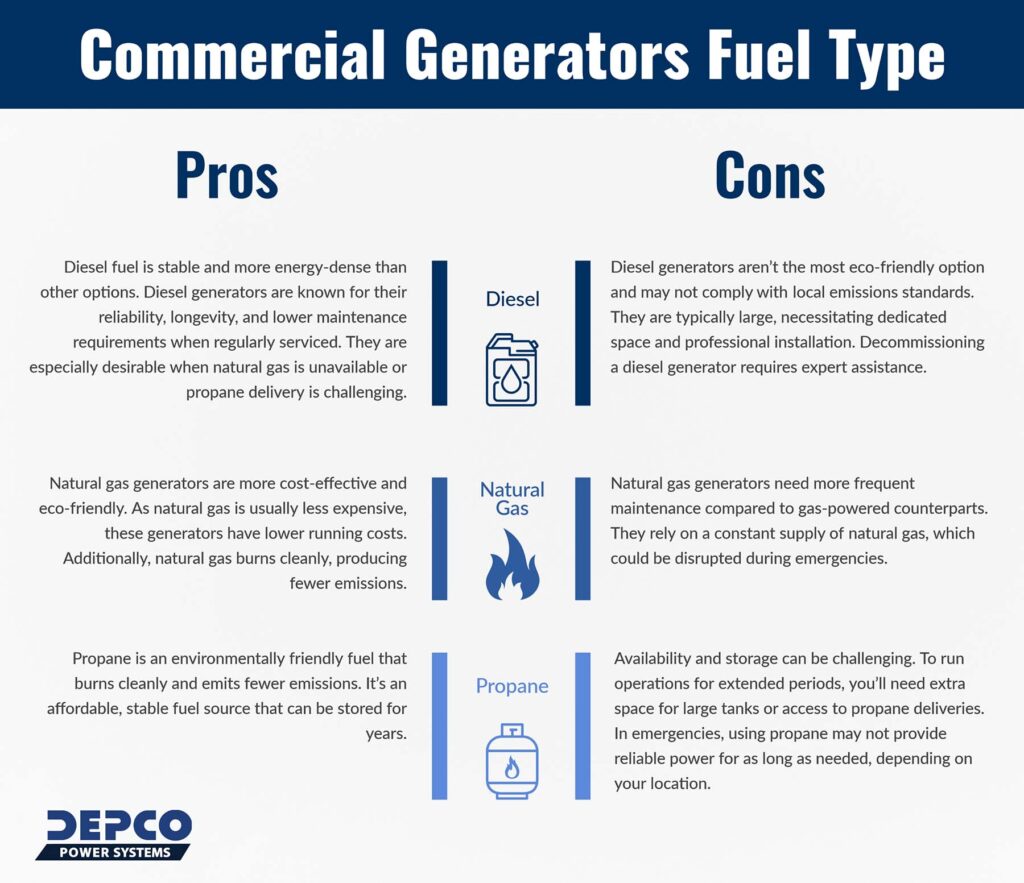
Pros/Cons Chart:
- Diesel
- Pros: Diesel fuel is stable and more energy-dense than other options. Diesel generators are known for their reliability, longevity, and lower maintenance requirements when regularly serviced. They are especially desirable when natural gas is unavailable or propane delivery is challenging.
- Cons: Diesel generators aren’t the most eco-friendly option and may not comply with local emissions standards. They are typically large, necessitating dedicated space and professional installation. Decommissioning a diesel generator requires expert assistance.
- Natural Gas
- Pros: Natural gas generators are more cost-effective and eco-friendly. As natural gas is usually less expensive, these generators have lower running costs. Additionally, natural gas burns cleanly, producing fewer emissions.
- Cons: Natural gas generators need more frequent maintenance compared to gas-powered counterparts. They rely on a constant supply of natural gas, which could be disrupted during emergencies.
- Propane
- Pros: Propane is an environmentally friendly fuel that burns cleanly and emits fewer emissions. It’s an affordable, stable fuel source that can be stored for years.
- Cons: Availability and storage can be challenging. To run operations for extended periods, you’ll need extra space for large tanks or access to propane deliveries. In emergencies, using propane may not provide reliable power for as long as needed, depending on your location.
Ultimately, the choice of generator fuel will be influenced by efficiency, location, and environmental regulations. Keep local regulations and available space in mind when selecting the best fuel type for your backup power solution.
Generator Features, Environmental Considerations, and Installation
Enhance the performance and reliability of your industrial generator with advanced features tailored to your operational needs and local requirements. Consider options such as low oil sensors, voltage control, transfer switch options, remote monitoring, and sound attenuation enclosures.
When selecting a generator, prioritize environmental and safety considerations by consulting local regulations and adhering to emissions standards and noise restrictions. Proper placement is crucial; install generators outside, at least 20 feet away from buildings, in a dry, well-ventilated area with convenient access for personnel. This placement helps meet safety standards and prevents carbon monoxide accumulation. Regular inspection and maintenance are essential to optimize performance, efficiency, and safety.
For installation and commissioning, work with a certified installer who can guide you through site preparation, fuel and electrical line connections, and necessary equipment tests. Trusting trained professionals ensures attention to detail at every step, providing you with a worry-free installation process.
Leverage Depco’s Expertise for the Perfect Fit
Depco Power Solutions offers the expertise and knowledge necessary to help you navigate the complexities of load requirements, fuel types, and generator selection. Our experienced team understands environmental and safety requirements, ensuring you choose the best options and features tailored to your operational needs. With trained professionals handling the installation process, you can enjoy a hassle-free experience.
Reach out to Depco today and let our sales staff assist you in identifying the ideal commercial generator to keep your business powered and thriving.


